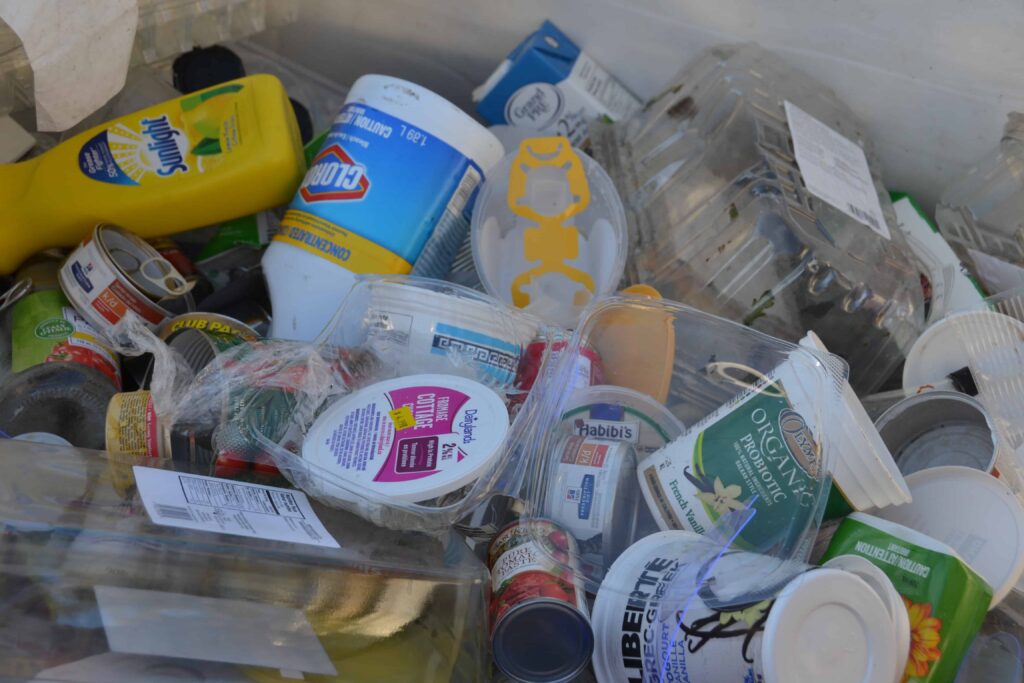While most residential packaging is accepted in Multi-Material BC (MMBC)’s packaging and printed paper recycling program, there are some materials that we ask you not to put in your recycling bin. Below we explain why.
First, let’s review what you can recycle: Printed paper, most plastic containers, most paper containers and metal containers can be taken to a depot or, if you live in a community with MMBC curbside or multi-family recycling, these can be set out for collection. Plastic bags and plastic foam packaging are only accepted at MMBC depots because these materials need to be stored separately from other recyclables so they can be recycled properly. Non-deposit glass bottles and jars are accepted at depots, and depending on your recycling collector, may be part of your curbside or multi-family collection—check with your recycling service provider for information about how glass is handled in your community.
Some packaging, such as packaging made of a number of different materials (foil-lined cardboard takeout containers, for example), is not accepted because there aren’t any processes to efficiently separate the materials or re-manufacturers who transform the materials into new products. MMBC will conduct research and development to explore how we can work with stewards, (the companies that supply packaging and printed paper to BC residents) to modify the design of unrecyclable packaging; work with material re-manufacturers to modify the specifications of the materials they accept, so that they can begin to incorporate the types of packaging that is currently not recyclable; and work with material re-manufacturers to develop new uses for materials that are currently unrecyclable.
Some materials are not accepted because they cause issues in the recycling process. For example, something long and thin, such as ribbon, can get wrapped around machinery and damage it. Containers with product remaining in them can be harmful to the workers at recycling facilities (we’ve found full bottles of bleach!).
Finally, there are some items that we do not accept because they are part of another stewardship program, or because they are excluded in the Recycling Regulation, such as hardcover and paperback books, recycling generated by businesses instead of residents, or items that are sold as products and are not packaging, such as garbage bags. Please check the BC Recyclepedia for information on how to dispose of these items.
MMBC is a non-profit organization, and we want to operate a recycling system that is as efficient and effective as possible. There are many costs incurred in operating a recycling program, including the costs of collecting, processing, and transporting materials. Residents can help ensure that the program is efficient and effective by adding only the printed papers and packaging that are accepted in the program to their recycling, so that we are not transporting materials that either cannot be recycled or will reduce the quality of materials to be re-manufactured.
So what happens when you throw materials that aren’t accepted in MMBC’s packaging and printed paper recycling program into your recycling?
In addition to potentially harming recycling facility staff and machinery, it’s wasteful for us to collect materials that we can’t recycle. We waste resources transporting the materials, and you waste time sorting the materials before we collect them. If everybody living on your street or in your building adds unaccepted materials to their recycling, the load could be considered “contaminated,” meaning that it cannot be sorted properly, and none of the material is recycled.
If you’re not sure about whether a material can be recycled, check our materials list. You can also check with your recycling collector, or check the BC Recyclepedia.




